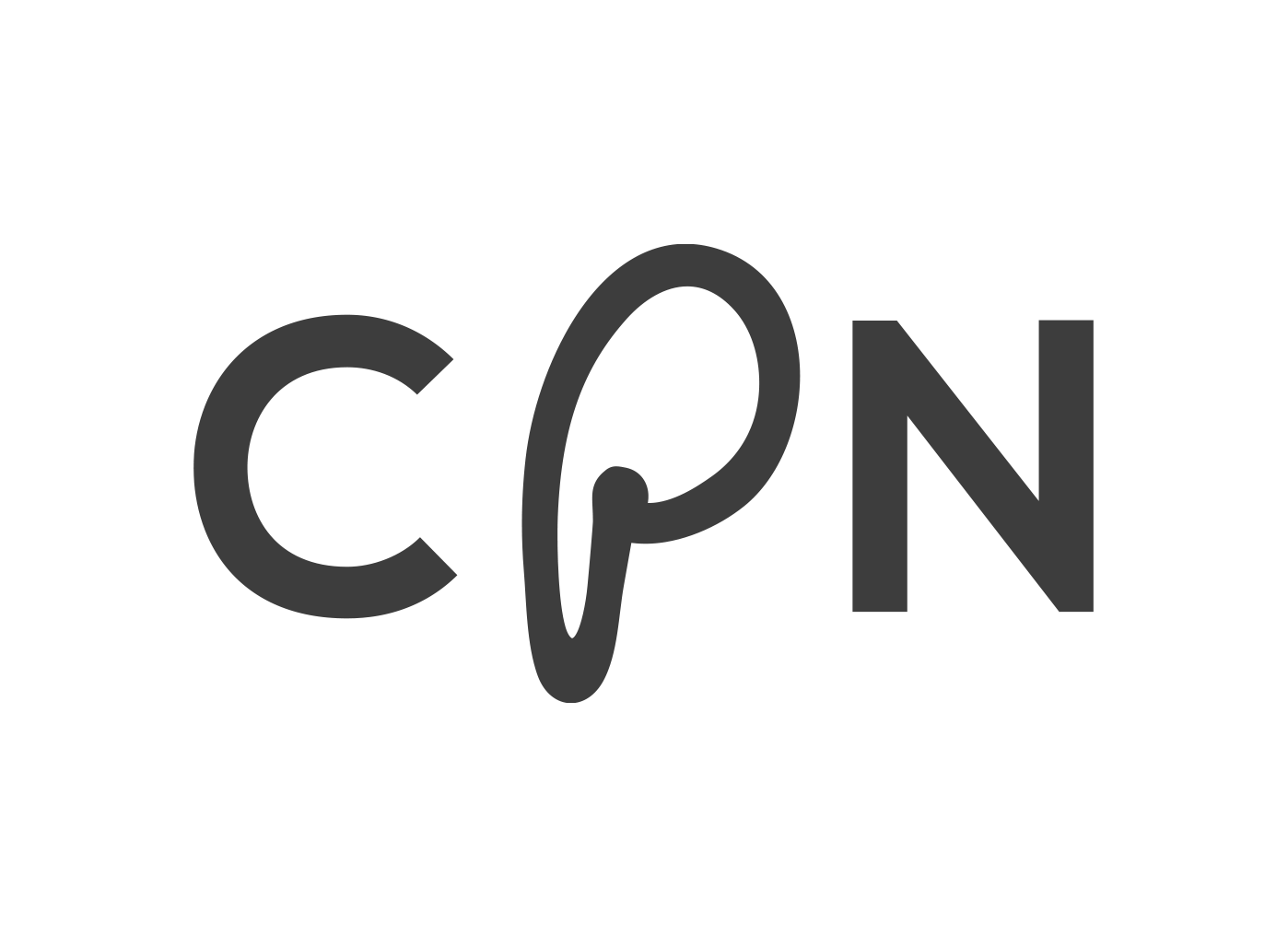How to Make a CPN Step by Step: Easy Guide
You may have heard about Credit Privacy Numbers (CPNs) and wondered if they are legal, considering various identity theft crimes and illegal identity theft reports.
Understanding the legality of CPNs and their application is crucial for anyone considering their use for personal credit information or seeking credit advice.
This blog post will clarify what a CPN is, how it is used, and whether it complies with legal standards under the act. By the end, you will have a clear understanding of the implications and risks associated with using a CPN and how to act accordingly.
We aim to provide accurate information based on current laws, regulations, and legitimate CPN. It’s essential to be well-informed before making any decisions that could impact your financial standing. Stay tuned as we delve into the legalities surrounding CPNs.
Key Takeaways
Understand CPNs: A Credit Privacy Number (CPN) is not a legal substitute for a Social Security Number (SSN). Misuse can lead to serious legal consequences.
Legal Ambiguity: The legal status of CPNs is murky. While not inherently illegal, using a CPN to misrepresent your identity is against the law.
Know the Differences: Distinguish between CPNs and other legitimate forms of identification like SSNs and EINs. This knowledge can prevent unintentional fraud.
Recognize the Risks: Using a CPN can expose you to risks such as identity theft, fraud charges, and financial penalties.
Avoid Scams: Be cautious of companies offering CPNs as a quick fix for credit issues. These are often scams that can worsen your financial situation.
Repair Credit Legally: Focus on legitimate methods to repair your credit, such as disputing errors on your credit report, paying down debt, and consulting with certified credit counselors.
What is a CPN?
Definition of CPN
A Credit Privacy Number (CPN) is a nine-digit identifier. It is often marketed as a way to repair bad credit. However, these numbers are not issued by the federal government. Instead, they are created by private entities.
CPNs have no official legal standing. They are not recognized by any governmental institution. This means using a CPN in place of your Social Security Number (SSN) can lead to legal problems.
CPNs are often associated with identity theft. Some people obtain these numbers through fraudulent means. This association with illegal activities makes their use risky and potentially harmful.
Common Uses of CPNs
CPNs are primarily used to apply for credit. People use them to fill out credit applications without revealing their true SSN. This practice aims to hide poor credit history from lenders.
These numbers are heavily marketed for credit repair purposes. Companies claim that using a CPN can improve your chances of getting approved for loans or credit cards. However, this is misleading and often illegal.
Many individuals attempt to bypass their poor credit history with a CPN. They believe it offers a fresh start. Unfortunately, this is not the case, and it can lead to serious consequences.
e use CPNs to obtain loans or credit cards. They hope that lenders will not check their real credit history. This is a form of fraud and can result in severe penalties.
CPNs are also sometimes used to hide negative credit information. By using a different number, people try to escape the impact of past financial mistakes. This strategy rarely works and often backfires.
Why People Use CPNs
People use CPNs mainly to try to rebuild their credit. They think these numbers offer an easy solution to their financial problems. Unfortunately, this belief is based on misinformation.
Individuals may be misled by fraudulent credit repair services. These companies promise quick fixes and guaranteed results. In reality, they often take your money without providing any real help.
e believe that CPNs offer a fresh start for credit applications. They think they can wipe the slate clean and begin anew. This misconception leads many down a dangerous path.
There is a widespread misconception that CPNs are a legal alternative to SSNs. Many people do not realize that using a CPN can be considered fraud. This misunderstanding can have serious legal repercussions.
Desperation to improve credit scores drives some to use CPNs. When faced with financial difficulties, people look for any possible solution. Unfortunately, this desperation can lead them into risky and illegal actions.
Legal Status of CPNs
Is a CPN Legal
Using a CPN is not legal. These numbers are often tied to criminal activity. Applying for credit with a CPN constitutes fraud.
No entities have the legal authority to issue CPNs. The Social Security Administration (SSA) does not recognize them. Purchasing or using a CPN can lead to legal trouble. You risk severe penalties and consequences.
Many people think CPNs offer a fresh start. However, they are deceived by false promises. Using these numbers can damage your future.
Legal Consequences
Potential sentences for using a CPN range from 15 to 30 years in prison. Courts do not take these offenses lightly. Substantial fines may also be imposed.
Individuals may face convictions for identity theft crimes. This can include various fraudulent activities. Federal prosecution is a real possibility. The government takes these cases seriously.
Legal consequences also include having a criminal record. This affects your ability to find employment. It impacts many areas of your life.
Federal Laws on CPNs
The Privacy Act of 1974 is relevant to CPNs. It protects individuals’ personal information. However, federal law does not recognize CPNs as legitimate.
The Department of Justice actively prosecutes CPN-related fraud. They focus on stopping identity theft. Using a CPN is classified under federal laws as identity theft.
No federal agency issues or endorses CPNs. The SSA provides valid Social Security Numbers (SSNs). Any other number is likely illegal.
Differences Between CPNs and Other IDs
CPN vs. SSN
An SSN, or Social Security Number, is a government-issued identifier. The U.S. Social Security Administration issues SSNs to track individuals for social security purposes. These numbers are legally recognized and used for tax and credit purposes. Financial institutions use SSNs to verify your identity and credit history.
CPNs, or Credit Privacy Numbers, are not legally recognized. They are often stolen SSNs from children or deceased individuals. Using a CPN instead of an SSN is illegal. The law considers it fraud because it involves misrepresenting your identity.
CPN vs. EIN
An EIN, or Employer Identification Number, is issued by the IRS. Businesses use EINs for tax purposes. They help identify business entities in their tax filings. EINs are legally recognized and required for most businesses.
CPNs are not issued by any government agency. Unlike EINs, they have no legal standing. Using a CPN for personal credit is illegal. It can lead to severe penalties, including fines and imprisonment.
CPN vs. ITIN
An ITIN, or Individual Taxpayer Identification Number, is also issued by the IRS. It is used for tax purposes by individuals who do not qualify for an SSN. This includes non-residents, dependents of U.S. residents, and others who need to file taxes.
ITINs are legally recognized identifiers. They allow you to comply with U.S. tax laws even if you don’t qualify for an SSN. In contrast, CPNs are often used fraudulently to obtain credit or other benefits illegally.
Using a CPN for credit applications is illegal. It constitutes identity theft and can result in criminal charges.
Risks of Using a CPN
Fraudulent Activities
Selling CPNs is a fraudulent activity. People who sell these numbers often mislead buyers about their legality. If you use a CPN to apply for credit, it is considered fraud. Financial institutions view this as an attempt to deceive them.
CPNs are often linked to identity theft. Many schemes involve stolen identities. Criminals use these stolen identities to create fake CPNs. By purchasing a CPN, you might unintentionally become involved in fraud. This can lead to serious legal consequences.
Many states have laws against using CPNs. These laws aim to protect consumers from fraudulent activities. You should be aware of your state’s regulations to avoid legal trouble.
Criminal Penalties
Using a CPN can lead to severe criminal penalties. Potential prison sentences range from 15 to 30 years. These sentences depend on the severity of the offense and the number of victims involved.
You may also face hefty fines if convicted. These fines can be substantial, adding financial strain to your situation. Convictions often include charges of identity theft, which carry additional penalties.
A criminal record can result from using a CPN. This record can affect your future employment prospects and other aspects of your life. Federal prosecution is a likely outcome for those caught using or selling CPNs. The federal government takes these offenses seriously and prosecutes offenders to the fullest extent.
Impact on Credit Score
Using a CPN can lead to credit application rejections. Lenders often detect fraudulent activity and deny applications associated with CPNs. This rejection can further damage your credit score.
Fraudulent activity linked to CPN use can worsen your credit situation. Legal issues arising from using a CPN can negatively impact your credit score as well. Court judgments and liens can appear on your credit report, making it harder to obtain future credit.
Credit repair scams involving CPNs often promise quick fixes but end up worsening your credit situation. These scams prey on individuals desperate to improve their credit scores quickly. Legitimate credit-building methods are always preferable and more effective long-term solutions.
Avoiding CPN Scams
Recognize Red Flags
Promises of a “new credit identity” are suspicious. Legitimate credit repair does not involve creating a new identity. Illegal CPN scams often lure you with these promises. If someone offers this, be cautious.
Requests for payment upfront are a red flag. Reputable services usually charge after providing help. Scammers ask for money first and then disappear or provide nothing useful.
Lack of transparency about the source of CPNs is concerning. If the seller cannot explain where the CPN comes from, it is likely illegal. Legitimate businesses should provide clear information.
Guarantees of improved credit through CPNs are misleading. No one can guarantee a better credit score using a CPN. These claims are often false and used to trick you into paying.
Businesses selling CPNs often engage in fraudulent practices. They may use stolen Social Security numbers or other illegal methods. Associating with them can lead to serious legal issues.
Verify Information Sources
Checking the legitimacy of credit repair services is important. Look for reviews and verify their credentials. CPN scam artists often pose as legitimate companies.
Government websites provide reliable information. Visit sites like the Federal Trade Commission (FTC) for accurate advice on credit repair and fraud prevention.
Consumer protection agencies can offer guidance. Agencies like the Consumer Financial Protection Bureau (CFPB) have resources to help you avoid scams and protect your finances.
Verifying the credentials of financial advisors is crucial. Ensure they are licensed and have no history of fraud. Unverified advisors might lead you into scams.
Researching reviews and complaints can help identify scams. Look up any service or advisor you consider using. Negative reviews and complaints can signal potential fraud.
Report a Scam
Contacting the Federal Trade Commission (FTC) to report scams is essential. The FTC investigates fraudulent activities and can take action against scammers.
The role of the Consumer Financial Protection Bureau (CFPB) is significant. Reporting to the CFPB helps them track and address widespread fraud issues, protecting more consumers.
Local law enforcement can be notified of fraudulent activities. Reporting to your local police ensures that authorities are aware and can take action at a community level.
Reporting to credit bureaus can help prevent further fraud. Informing bureaus like Experian, Equifax, and TransUnion helps protect your credit report from unauthorized changes.
Sharing information with consumer protection agencies is beneficial. Agencies like the Better Business Bureau (BBB) collect data on scams, helping warn others about fraudulent practices.
Legal Ways to Repair Credit
Pay Bills on Time
Paying bills on time positively affects your credit scores. Consistent payments show financial responsibility. This practice demonstrates that you can manage your finances well.
Avoiding late fees helps maintain good credit. Late payments can damage your credit score and incur extra charges. Setting up automatic payments ensures timely payments.
Paying bills on time is a legitimate way to improve credit. It reflects positively on your credit report and builds trust with lenders.
Reduce Debt
Reducing debt can improve your credit scores. High levels of debt negatively impact your credit. Paying off high-interest debts first can be beneficial.
Creating a budget helps manage debt repayment. A clear plan makes it easier to track expenses and prioritize payments. Consolidating debts may simplify payments.
Seeking financial counseling provides strategies for debt reduction. Professionals can offer advice tailored to your situation. They help you create a realistic plan to pay off debts.
Dispute Errors on Reports
Reviewing credit reports regularly is important. Mistakes on your report can lower your score unfairly. Disputing errors can correct inaccuracies.
Contacting credit bureaus is necessary for disputes. You need to inform them about the errors found. Providing documentation supports dispute claims.
Resolving errors can improve your credit scores. Correct information on your report reflects your true financial status. This can make it easier to get loans or new credit accounts.
Seek Professional Help
Certified credit counselors provide guidance. They help you understand your credit report and suggest improvements. Financial advisors offer personalized strategies.
Legal assistance may be needed for complex issues. Some problems require professional legal advice. Nonprofit organizations often provide free credit counseling.
Professional help can prevent involvement in scams. Legitimate credit repair companies follow legal guidelines and offer reliable services. Avoid fraudulent credit repair companies by seeking certified professionals.
Final Remarks
Understanding the complexities and legalities surrounding CPNs is crucial. They are not legitimate substitutes for Social Security Numbers and can pose significant risks. It is essential to differentiate between CPNs and other forms of identification to avoid potential legal repercussions.
You should prioritize legitimate methods of credit repair. Avoid falling prey to scams that promise quick fixes through CPNs. By focusing on lawful strategies, you can rebuild your credit score responsibly. Stay informed and cautious, ensuring your financial actions are both ethical and legal. For more insights on maintaining a healthy credit profile, consider consulting a financial advisor.
Frequently Asked Questions
What is a CPN?
A CPN, or Credit Privacy Number, is an identifier used in place of a Social Security Number (SSN) for credit reporting purposes. It is not issued by the government.
Is using a CPN legal?
No, using a CPN is illegal. It is considered fraud to use a CPN to apply for credit or loans as it misrepresents your true identity.
How does a CPN differ from other IDs?
A CPN is not a legitimate form of identification. Unlike SSNs or ITINs, which are government-issued, CPNs are often sold illegally and can lead to serious legal consequences.
What risks are associated with using a CPN?
Using a CPN can result in criminal charges, including fraud and identity theft. It can also lead to financial penalties and damage your credit score further.
How can one avoid CPN scams?
To avoid CPN scams, always verify the legitimacy of credit repair services. Avoid any service that offers quick fixes or alternative identification numbers like CPNs.
What are legal ways to repair credit?
Legal ways to repair credit include paying bills on time, disputing inaccuracies on your credit report, and working with accredited credit counseling agencies.
Are there any government resources for credit repair?
Yes, the Federal Trade Commission (FTC) provides resources and guidelines for legally repairing credit. Always refer to trusted government websites for accurate information.











